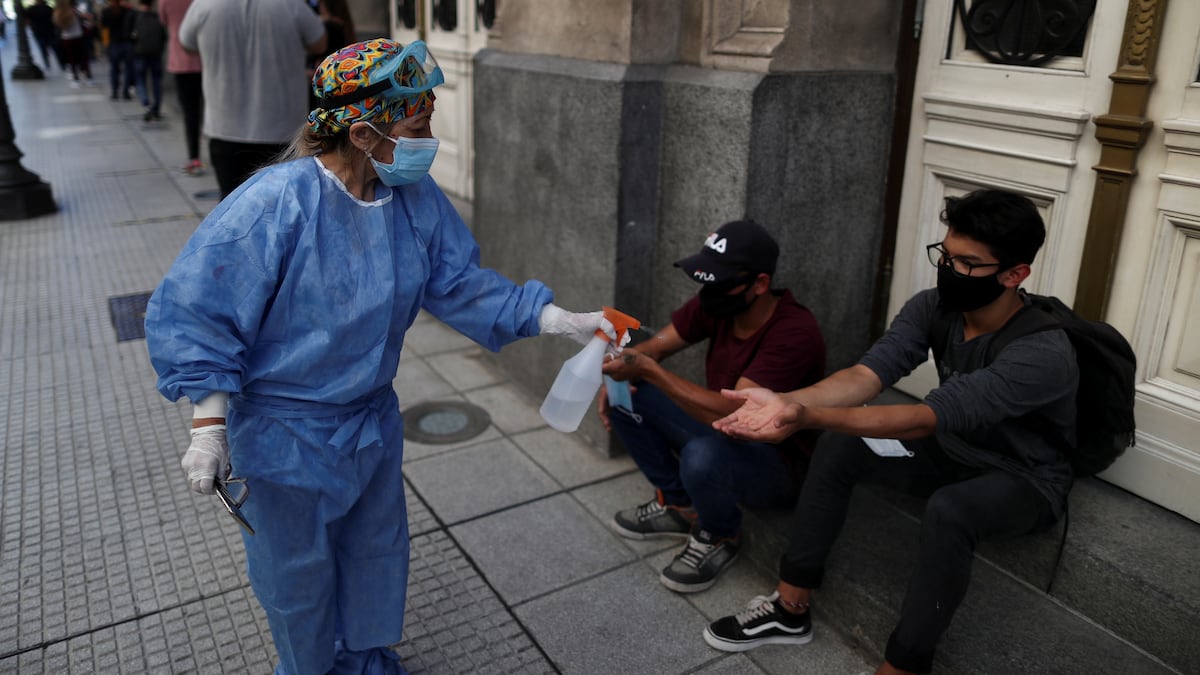From 8:00 p.m. to 6:00 a.m. it will not be possible to circulate on the streets of Buenos Aires and its metropolitan area. Schools in Argentina’s most densely populated region will be closed for two weeks starting Monday. Nor may recreational, educational or religious activities be carried out in closed spaces. These are some of the main measures announced this Wednesday by the Argentine president, Alberto Fernández, to stop the rapid escalation of positive cases of covid-19, which this week have registered record numbers since the start of the pandemic, thirteen months ago.
“I have decided to take a series of measures that I consider imperative to guarantee not to stop the vaccination process and that the health system is not saturated,” the Argentine president announced at the beginning of his recorded message. “The problem is not only the night, it is the individual carelessness of each one of us,” he warned before demanding that citizens respect the new restrictions that will come into effect from Friday. Shops may remain open during the day, as long as they respect the established protocols, as well as bars and restaurants, which must close at night and may only offer take away food. Fernández has warned that he will deploy police forces to enforce the restrictions, effective as of Friday. The Army will also take to the streets, but destined to provide health care.
More information
The Executive admitted last week that Argentina had entered a second wave. At that time, he imposed some restrictions and left the decision to toughen them up to the governors of the most complicated provinces and it has been shown that the state reaction was insufficient: cases have continued to rise. Last Wednesday 22,059 new infections were registered; seven days later, 25,157. Today’s 368 deaths are the highest number in the past three months.
“We seek to avoid social encounters, regain distancing, lower circulation and gain time again so that intensive care beds, which today are being used for other pathologies, are once again reserved for cases of covid,” Fernández highlighted. According to the latest data from the Ministry of Health, in Buenos Aires and its metropolitan area, the percentage of occupancy of intensive care beds has risen to 71.4%. The private sector, which serves about 70% of the Argentine population, is closer to saturation than the public.
Virtual classes
Schools are closing again less than two months after they reopen. The Government opted until the last moment to maintain presence in the educational system after 2020 almost completely virtual, but in the end it opted for a temporary closure that will significantly reduce circulation. The measure, effective as of Monday, is taken on the same day that the public schools of Buenos Aires had gone on strike to demand a return to virtuality. For a couple of weeks, more and more students have been confined at home by confirmed cases of covid, while the unions demand the vaccination of all educational personnel, which progresses very slowly due to the lack of sufficient doses.
On the morning of this Wednesday, the Minister of Health, Carla Vizzotti, had anticipated that the country is in “a critical moment not only from a health point of view, but also from a social and emotional point of view.” “The situation is delicate and the health system is in tension, especially the intensive care beds,” the head of the health portfolio had warned before calling on the public to “avoid” all kinds of activity that “is not a priority ”.
Fernández has announced the new restrictions on his own since the fifth presidential term in Olivos, where he has been confined after being infected with covid-19. Unlike a year ago, the dialogue with the opposition is tense and the president has also lost the high popularity he enjoyed at the beginning of the pandemic. In some neighborhoods of Buenos Aires, the measures have been answered with cacerolazos from the balconies, while social networks have become a pitched battle between defenders and detractors of the Executive. The opposition aims its darts at the weakest flank: the vaccination campaign, which with 5.8 doses applied, is close to a quarter of what was promised.
Subscribe here to newsletter from EL PAÍS América and receive all the informative keys of the current situation of the region.
–


